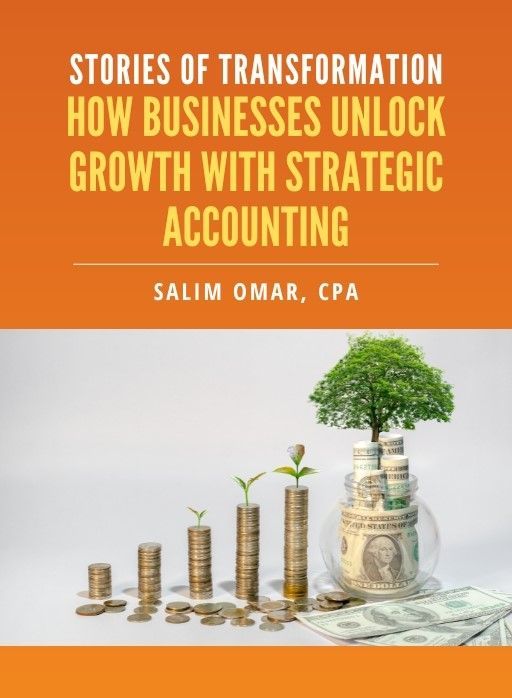Year-End Expenses That Could Lower Your Tax Bill (And How to Track Them)
As the Year Ends, Every Dollar Counts
As the year winds down, business owners everywhere start asking the same thing: “Is there still time to cut my tax bill?”
Short answer — absolutely. But not by throwing money around. Strategic spending, backed by solid documentation, can have a significant impact if executed effectively.
At Straight Talk CPAs, we’ve seen plenty of entrepreneurs go on a December shopping spree, hoping last-minute buys will “count.” The truth? Smart tax planning isn’t about spending more. It’s about spending intentionally — and keeping records that back you up if the IRS ever comes calling.
Here’s how to make your year-end expenses work harder for you — without tripping audit wires.
Why Year-End Expenses Matter
Tax planning doesn’t shut down when revenue’s in the books. You can still shape your final taxable income by managing how and when you spend business money.
Making the right moves before December 31 can help you:
- Lower taxable income for the year
- Keep cash flow predictable
- Tighten up your financial reporting
- Avoid tax-season curveballs
Just remember — the IRS only respects expenses that are “ordinary and necessary.” Translation: no panic buying in the name of deductions.
1. Equipment and Tech Upgrades
Been putting off that laptop or software upgrade? Now’s the time. Under Section 179, eligible gear purchased and in service before December 31 could qualify for immediate deduction — sometimes covering nearly the full cost.
Run it by your tax professional to ensure it qualifies and to time it correctly. That upgrade to your business laptop or accounting system might directly reduce taxable income — not just depreciate slowly.
Pro tip: It’s not enough to order the item; it has to be
set up and in use before year-end.
2. Prepay Business Expenses
If you’re on cash-basis accounting, paying certain recurring expenses early — like insurance, rent, or subscriptions — can count toward this year’s deductions.
Example:
Paying your 2026 software license in December 2025 could trim your 2025 tax bill. Check with your
CPA first, though. Some prepayments don’t qualify, and timing can make or break the deduction.
3. Employee Bonuses and Benefits
Year-end is the perfect time to thank your team — and reduce your taxable income at the same time.
Bonuses paid before year-end are deductible, and benefits like health plans or retirement contributions can lower your tax hit even further.
Just document everything properly and ensure payroll taxes are handled right. The IRS pays special attention to unplanned or undocumented bonuses.
4. Professional Services and Consulting
Now’s also a smart moment to invest in expert advice — legal, financial, or strategic.
These are fully deductible business expenses, and the right advisor can often uncover savings you didn’t know you had. Think of it as spending money to save money — insight that earns its keep.
5. Charitable Contributions
Planning to donate? Make sure the funds or goods are received — and receipted — before December 31.
Cash donations, inventory, or even volunteer-related costs can all qualify. Just keep detailed records: who you donated to, what you gave, and when it happened.
How to Track Year-End Expenses the Right Way
The best deduction is the one you can prove. Whether you’re managing your own books or working with a CPA, clean records are your safety net.
Here’s what works:
- Use accounting software: QuickBooks, Xero, or any system that lets you tag expenses in real time.
- Go digital: Snap photos of receipts or upload invoices — no more shoebox filing.
- Keep accounts separate: Mixing personal and business funds is a deduction killer.
- Reconcile monthly: Don’t wait for tax season chaos.
Ask yourself:
Would this expense make sense to an auditor? If yes, you’re probably in the clear.
Common Missteps to Avoid
- Buying things, you don’t actually need just to claim a write-off
- Skipping smaller deductions like meals, mileage, or travel
- Assuming all prepayments are fair game
- Forgetting documentation for donations or reimbursements
Remember: every deduction needs a paper trail.
The CPA Advantage
A good CPA sees opportunities that most business owners miss — from depreciation timing to overlooked expense categories.
At Straight Talk CPAs, we don’t push panic spending. We help you plan ahead, document cleanly, and stay compliant — so you keep more of what you’ve earned without crossing any red lines.
Bottom Line
Year-end spending isn’t a race — it’s a strategy. The goal is to use every legal advantage before the calendar flips.
By tracking carefully, planning early, and getting expert input, you can turn ordinary expenses into real savings — the kind that bring peace of mind come tax season.
Before December 31 hits, take a hard look at your books, your goals, and your next moves. A few smart calls now could mean thousands saved later.
Free eBook:
Stories of Transformation


Salim is a straight-talking CPA with 30+ years of entrepreneurial and accounting experience. His professional background includes experience as a former Chief Financial Officer and, for the last twenty-five years, as a serial 7-Figure entrepreneur.





